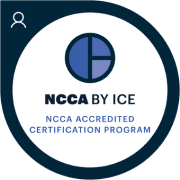- Get Certified
- Certification Process
- Subspecialties and FPDs
- Focused Practice Designations
- Anesthesiology Critical Care Medicine
- Emergency Medical Services (EMS)
- Health Care Administration, Leadership, & Management (HALM)
- Hospice and Palliative Medicine
- Internal Medicine – Critical Care Medicine
- Medical Toxicology
- Neurocritical Care
- Pain Medicine
- Pediatric Emergency Medicine
- Sports Medicine
- Undersea and Hyperbaric Medicine
Certifying Exam

2026 Administration
Exam candidates will be assigned to a half-day session during one of multiple exam administration windows throughout the year:
| 2026 Exam Dates | Exam candidates will be assigned to a half-day session during an administration window: March 9 – 12 | May 11 – 14 | June 15 – 18 | June 29 – July 2 | August 3 – 6 | August 17 – 20 | August 31 – September 3 | October 19 – 22 | November 16 – 19 |
| Registration Period | TBD |
| Fee* | $1,255 |
* Fees subject to change
Common Questions
How is the Certifying Exam different than the Oral Exam?
The Certifying Exam will test additional competencies that cannot be tested on the Qualifying Exam or current Oral Exam.
It will assess:
- High-stakes Communications and Difficult Conversations
- Patient Communications Beyond Diagnosis
- Procedural Skills
- Clinical Decision Making/Shared Decision Making
- Team Management
- Leadership
- Reassessment / Troubleshooting
- Task Switching
- Prioritization
The Certifying Exam will take place in person at the AIME Center, a professional assessment center in Raleigh, North Carolina. Multiple exam administrations will take place each year, giving candidates more flexibility in scheduling.
Why Raleigh, NC?
The ABEM Board of Directors evaluated and toured several venues around the country to
explore their capabilities to host the Certifying Exam. Search criteria included finding a space to examine various case types, including procedural skills and simulation, that would support standardized equipment and experience for all candidates and could adapt to changes in exam format and new innovative technology (e.g., adding Virtual Reality) as the exam evolves.
The AIME Center in Raleigh, NC is a state-of-the-art facility with flexible space that can be
configured to accommodate clinical cases, procedural cases, simulations, and
modalities that may not be conceived yet. The Center can support medical equipment and
simulators to be used in testing. This facility supports providing an exam that can be
standardized for all candidates regardless of administration. It ensures a fair and equitable
experience using a variety of technologies for all candidates.
The AIME Center also allows ABEM to partner with a local, diverse group of actors who work as Standardized Patients (SPs). They are trained to provide a high-level testing experience for a certification exam. Some are also trained to work with physician case developers to provide their expertise in designing realistic patient interactions for certification exam cases. The AIME Center recruits a pool of diverse actors (e.g., age, race, gender, gender identity, physical type, physical abilities, sexual orientation, etc.) and that represent the U.S. patient population. This exam will be designed so that cases and interactions are a reflection of the U.S. patient population.
The AIME Center also has an exam administration infrastructure that will guide candidates
through the process. Candidates will arrive at the designated hotel. Check-in registration will occur at the hotel. A proctor is assigned to a set of candidates at the hotel. The proctor’s role is to guide the candidate through the exam and answer questions about logistics for their session. The candidate just needs to get to the hotel on their assigned day and time for their exam.
Is there validity evidence for the Certifying Exam?
Yes, ABEM conducted years of research before developing this new exam.
Why is the Oral Exam being retired after 2025?
The Oral Certification Exam is an important part of ABEM certification. It measures unique competencies that are not measured on the Qualifying (written) Exam and has been shown to be a valid and reliable examination. Most importantly, the Oral Exam differentiates ABEM-certified physicians from other providers. However, ABEM is developing an assessment that addresses feedback from the EM community. As the specialty grows and changes, ABEM must as well in order to continue ensuring the highest standards in the specialty.
I'm already certified, how will the Certifying Exam impact me?
Short answer: it won’t. There is no need for ABEM-certified physicians to travel to Raleigh or take the Certifying Exam. Your continuing certification requirements will not change.
But if you want to get involved, there are many volunteer opportunities!
About the Becoming Certified Initiative
Emergency Medicine is constantly evolving, and ABEM is dedicated to addressing the changing needs of emergency physicians and the specialty. Therefore, the Becoming Certified Initiative was created in 2021 to reimagine initial certification.
From that process, we discovered the need for an innovative new exam that could replace the Oral Exam. It will assess additional competencies and maintain the highest standards in the specialty of Emergency Medicine. Based on those years of research and feedback, we are proudly introducing the Certifying Exam in 2026.
Special thank you to everyone who participated in surveys, forums, summits, and meetings throughout the Becoming Certified Initiative. We heard you!
Becoming Certified Task Force
To support the Becoming Certified Initiative, ABEM convened the Becoming Certified Task Force to examine all aspects of the certification process. Over the span of two years, informed by the Stakeholder Advisory Group and input from stakeholders like you, this Task Force explored new options and possibilities to enhance the future of ABEM’s assessment and certification process.

Accomplishments
- Reviewed the current initial certification process
- Received input and feedback from stakeholders in the specialty through:
EM Residency Program Surveys, ABEM-certified physician surveys, EM organization Focus Groups, Workshops, EM employer interviews, site visits, and ABEM volunteer surveys - Developed a Becoming Certified Initiative Purpose Statement and Guiding Principles
- Hosted a BCI Summit to gather different perspectives, collaboratively explore the future of Emergency Medicine, and develop ideas to improve the ABEM certification process
- Identified problems/challenges as well as opportunities
- Looked at the future of assessment and what stakeholders value
- Identified what should be assessed, what ABEM standards mean to the specialty, and how those standards impact training and education
- Made recommendations on the initial certification process to the ABEM Board of Directors
Stakeholder Advisory Group
ABEM certification affects physicians, consumers, patient advocates, credentialers, medical educators, and more. Input from all stakeholders is critical to the review of the process for emergency physicians to become certified.
The Stakeholder Advisory Group is made up of individuals nominated from a wide variety of backgrounds—including physicians, patient advocates, medical educators, and more. Members of the group provide input and guidance to ABEM’s Becoming Certified Initiative.








